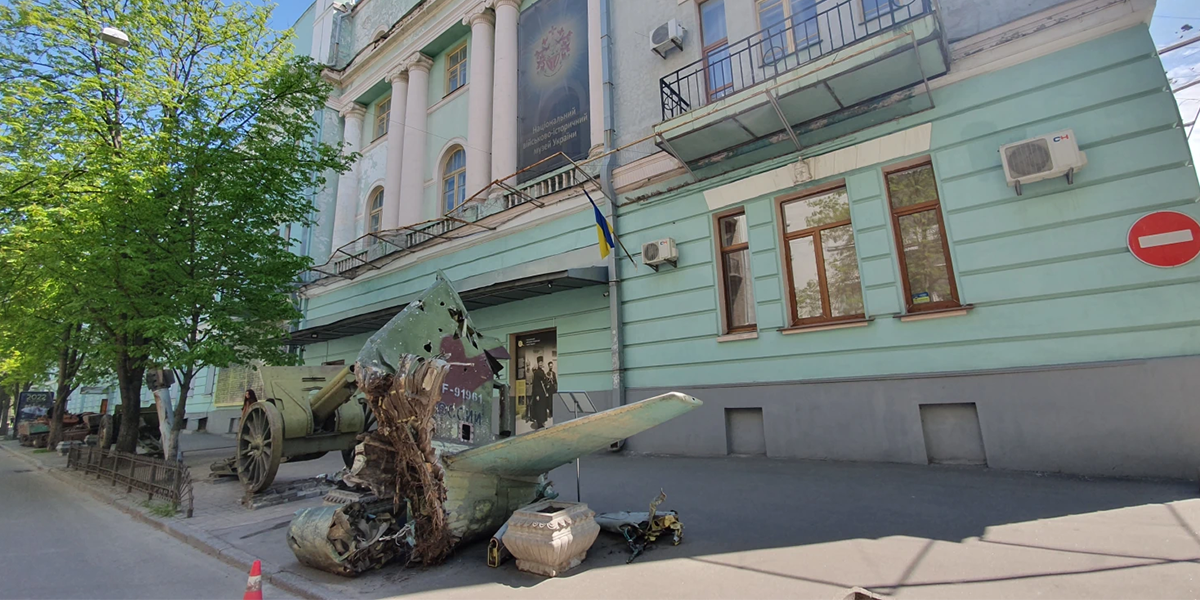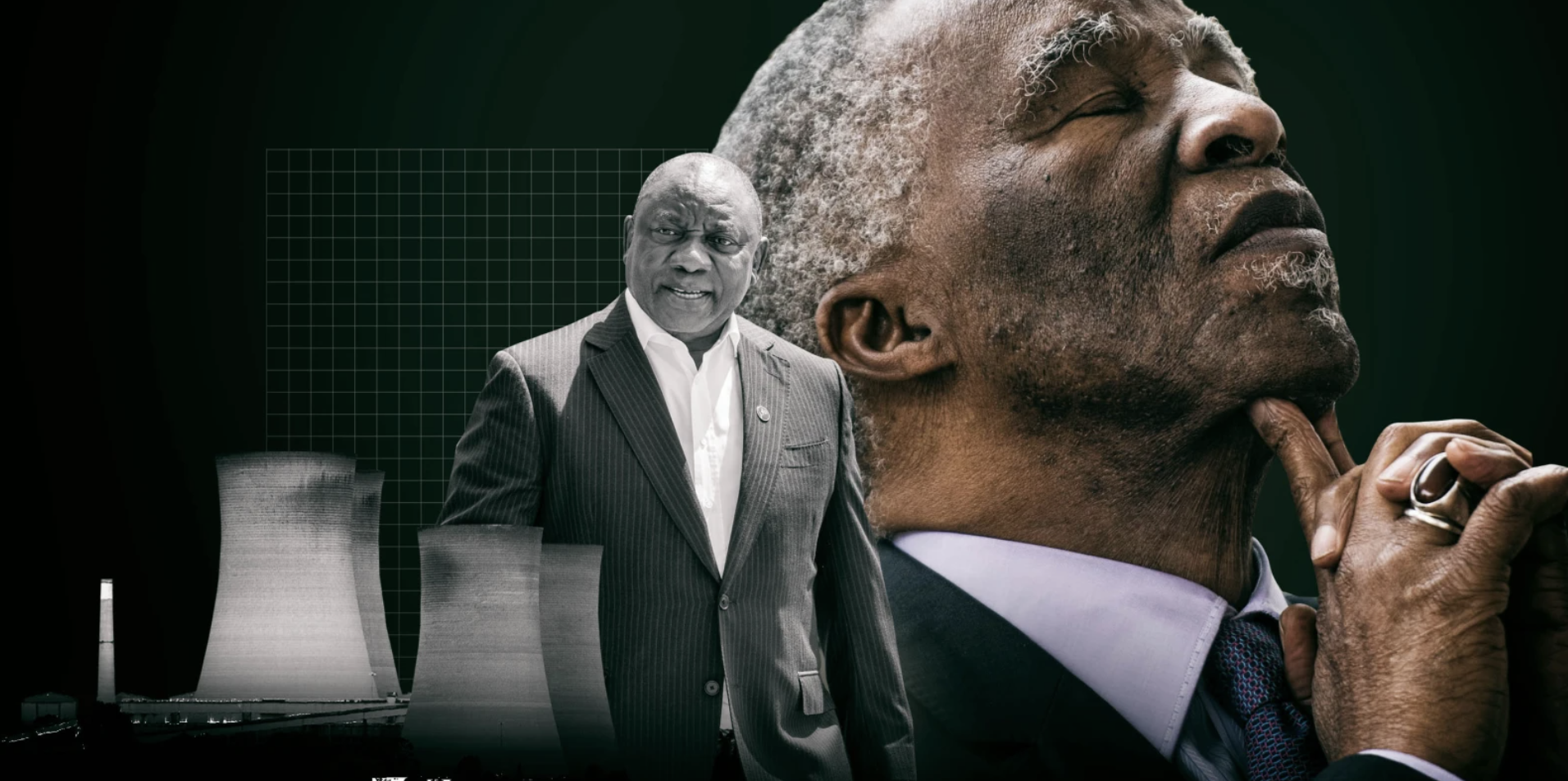News
African Support of Russian Invasion Extraordinary After the Continent's Colonial Past
Many Africans seem ambivalent about Putin's attempts to recreate Russia's empire, even though colonialism caused the African continent so much personal pain and injury, and seeded state dysfunction. Liberation struggles should be worthy of support, in Europe as in Africa.

“No nation has the right to make decisions for another nation; no people for another people.” These were the words of Tanzanian President Julius Kambarage Nyerere on colonialism in January 1968. Such perspectives have apparently been forgotten in responses to the Russian invasion of Ukraine.
Amid confusingly contrarian reports how Russia is “about to run out of steam” in its invasion of Ukraine, how Russia is openly no longer “limiting its war aims” to Ukraine's eastern areas, and the grain shipment deal agreed on by Kyiv and Moscow followed immediately by Russian missile-strikes on the Odesa port, one African contradiction stands out: Why, in the face of an obvious abrogation of human rights and international law by Russia, do many African states refuse to take the side of Ukraine?
The answer may have to do with opportunism.
The South African Department of International Relations and Co-operation has examined how South African businesses can profit by plugging the holes created by Ukraine's absence, for instance.
It may be speculative, for example over possible gas or nuclear deals with South Africa. It may have to do with naked self-interest: the potential financial support of the ANC by Russian oligarchs is one illustration, as is the role of the Wagner private military company in Mali and the Central African Republic.
It may be down to past favours, and succour for liberation movements, even though Ukraine is as much an inheritor of the obligations of Soviet assistance as Russia.
It may be down to current ideological empathies, in terms of Russia's role in supposedly supporting the global “south” through the BRICS, for one, and staying on the side of China which has taken an ambiguous if supposedly neutral position. Such ideological tendencies may also reflect in an enduring anti-Western sentiment, a legacy of the Cold War and empire. Some African countries may just be unwilling to engage, given the enormity of the problems that they face themselves at home.
Blind spot
The extent to which all these traits and reasons are present in the foreign policy calculations of African leaders should not obscure their apparent blind spot when it comes to Russia's motives, one which should resonate particularly with Africa.
President Vladimir Putin's move on Ukraine has been designed to roll back the clock and re-establish Russia as a great power. To do so, he needs Ukraine, the second-largest country in Europe (after France), and rich in agriculture and natural resources. To recreate, what William Burns, the CIA director, has described as a “sphere of influence in Russia's neighbourhood”, Putin needs at least to control Ukraine, preferably by making it part of Russia and destroying Ukrainian culture.
This is akin, however, to France attempting to take back Algeria, no matter the views of Algerians; or closer to home, Rwanda the Kivus in protection of the Banyamulenge and other Tutsi affiliates, and Lesotho parts of the Free State. If these are political non-starters, why do we turn a blind eye to Ukraine?
The extraordinary thing is that many Africans seem ambivalent about Putin's attempts to recreate Russia's empire, even though colonialism caused the African continent so much personal pain and injury, and seeded state dysfunction. As Patrice Lumumba, the first prime minister of a democratic Congo said about colonialism: “Without dignity there is no liberty, without justice there is no dignity, and without independence, there are no free men”.
Ambivalence
The question is, will this ambivalence cost Africa?
In part, this depends on what happens in Ukraine. At the very least, Russia has suffered strategic reversals, at least by the initial goals of the campaign — regime change in Kyiv and dissension in the West. As a result of its aggression, the West is now more united than at any time since 9/11, and Russia is today risking a great deal on the battlefield, as Ukraine gathers capability and Russia runs short of soldiers and materiel.
It should also be clear, particularly after the recent missile strikes on Odesa, that the problem of tightening global food supplies and rising prices is not sanctions against Russia, but Russian aggression. Moscow seems to understand appeasement and negotiation only as weakness, in a display of breathtaking arrogance recognisable among colonialists. By undermining trust, risking tens of millions of lives worldwide and snubbing the United Nations which brokered the grain deal along with the Turkish government, Putin has added to his list of strategic missteps.
And yet Ukraine has proven Lumbumba's assertion by fighting back.
Thabo Mbeki said in South Africa's Parliament in 2005 of the legacy of colonialism in Sudan and South Africa: “When these eminent representatives of British colonialism were not in Sudan, they were in South Africa, and vice versa, doing terrible things wherever they went, justifying what they did by defining the native peoples of Africa as savages that had to be civilised even against their will. Our shared colonial past left both of us with a common and terrible legacy of countries deeply divided on the basis of race, colour, culture and religion. But surely, that shared colonial past must also tell us that we probably need to work together to share the burden of building the post-colonial future.”
Yes, indeed.
Some progressive African leaders have rightly and roundly condemned Russia's invasion. Liberation struggles should be worthy of support, in Europe as in Africa.
This article was originally published by Daily Maverick.



